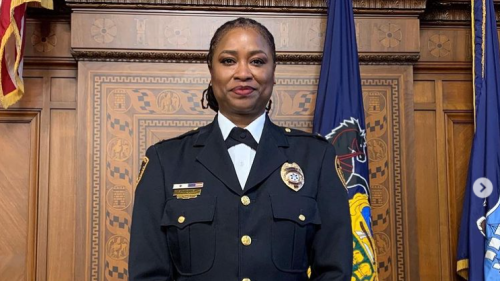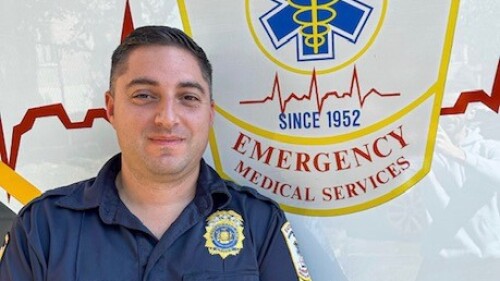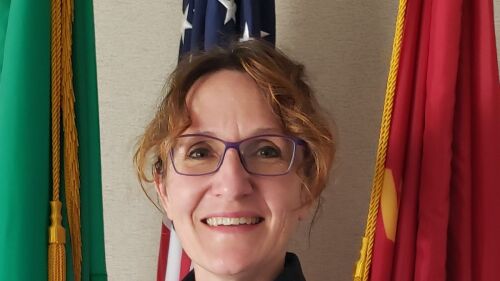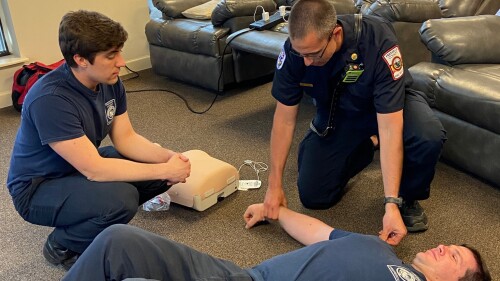Editor’s note: This video is excerpted from the Lexipol webinar, “”
The standard for excellence in public safety is changing. Lexipol is your partner in understanding how your agency measures up and setting a course to achieve performance excellence. today to learn about our holistic approach built on Gordon Graham’s 5 Pillars of Organizational Success.
As the field of public safety continues changing at a breakneck speed, public safety leadership must change as well. The challenges faced by today’s fire service, EMS, corrections and law enforcement leaders are vastly different from those from even a decade ago. From navigating complex emergencies to fostering team resilience and accountability, modern leaders must be adaptable, emotionally intelligent and proactive in their approach to their jobs.
In the recent webinar “,” Battalion Chief (Ret.) Bruce Bjorge and Chief (Ret.) Dave Funkhouser share five key abilities every public safety leader needs to develop to be effective in today’s quickly evolving environment. Leadership, they emphasize, is not about titles or ranks — it’s about mindset, intentional action and the ability to inspire others to excellence.
Let’s examine these five essential public safety leadership skills and provide some key insights from the panelists.
“Leadership is a craft — it requires practice, self-awareness and a willingness to improve.”
1. Outcome-based leadership: Focus on impact, not just goals
One of the fundamental requirements for effective leadership in modern public safety is moving beyond goal-setting to . While setting goals is important, Bjorge emphasizes, focusing on outcomes ensures every action serves a larger purpose.
“It’s important for us as leaders to move our organizations forward — not for the sake of achieving a goal, but to ensure we’re truly benefiting our communities,” Bjorge states. Instead of simply checking off items on a punchlist, he explains, leaders should ask, “What tangible impact will this action have?”
That means evaluating training, policies and initiatives based on real-world effectiveness. Are new response protocols actually improving safety? Are leadership decisions strengthening team morale and trust?
“At the end of the day,” Bjorge says, “everything we do should be based on the delivery of service to our communities. If it’s not improving service, then why are we doing it?” Funkhouser went a step further in urging leaders to engage with their teams in collaborative decision-making. “Some of the best ideas come from the people on the ground,” he notes. “Leaders need to be open to input, ask for feedback and create an environment where team members feel valued and heard.”
2. Intentional self-improvement: Commit to continuous growth
High-performing public safety leaders recognize that personal and professional growth never stops. Funkhouser stresses that self-improvement must be intentional, stating, “If you’re not growing, you’re stagnating. You can’t expect to lead others effectively if you’re not actively working on becoming a better version of yourself.”
The panelists highlight how many leaders fall into the , waiting passively for external training or development opportunities rather than taking ownership of their own learning. Self-improvement isn’t just about professional skills, Bjorge adds, but also involves personal resilience. As he puts it, “Leadership starts with you. If you’re not taking care of yourself physically, mentally and emotionally, how can you expect to be there for your team?”
3. Get it together: Organization and adaptability
In public safety, chaos is often the rule rather than the exception. Emergencies don’t follow a prewritten script, and leaders must be prepared to handle high-pressure situations efficiently. Because of this, Bjorge and Funkhouser emphasize the need for strong organizational skills and adaptability under the principle of “Get it together.”
“Public safety professionals are expected to have their act together at all times,” Bjorge states. “Yet, many of us are more organized at an emergency scene than we are in our own offices.” While firefighters, EMS personnel and police and corrections officers train extensively for response scenarios, he says, they often neglect to apply the same level of structure to administrative tasks, policy implementation and long-term planning.
Chief Funkhouser shares a real-world analogy: “I had a farmer neighbor who once told me, ‘You always gotta have the right tool for the job.’ That stuck with me as a leadership principle. If your team doesn’t have the right resources, training or leadership support, you can’t expect them to perform at their best.”
4. LOL — Listen, observe and learn
One of the most underrated public safety leadership skills is the ability to listen, observe and learn — or as Funkhouser puts it, “LOL.” Effective leaders don’t just give orders; they take the time to understand their teams, their environment and the challenges at hand.
Funkhouser stresses the importance of being an active listener. “When people come to you with concerns or ideas,” he says, “don’t just nod and move on — really listen. The best leaders don’t have all the answers; they ask the right questions and seek input from those around them.”
Building on that thought, Bjorge says leaders should be intentional about observing team dynamics and identifying areas for improvement: “If something isn’t working, don’t wait for a crisis to fix it. Stay engaged, pay attention, and make adjustments before small issues become big problems.”
5. Emotional intelligence: The foundation of effective leadership
Perhaps the most critical skill of all is . Great leaders carefully manage their own emotions and work hard to develop the ability to navigate interpersonal relationships with empathy and self-awareness.
Bjorge explains how emotional intelligence helps leaders respond to challenges without unnecessarily escalating conflict. “When tensions are high, the worst thing a leader can do is react emotionally,” he says. “Instead, take a step back, assess the situation and respond in a way that defuses rather than inflames.”
Funkhouser adds that emotional intelligence is also important in dealing with personnel issues. “If a team member is struggling, take the time to ask what’s really going on. Sometimes what looks like poor performance is actually a symptom of deeper challenges.”
Leadership as a journey, not a destination
As public safety professionals negotiate the shifting sands of practically all aspects of their respective fields, mastering these five skills will be essential for success. As experienced leaders, Bjorge and Funkhouser made it clear: Leadership is not about rank, title or seniority. It’s about mindset, continuous learning and a commitment to growth.
Bjorge left attendees with this final thought: “Every day is an opportunity to be better than yesterday. Leadership is a craft — it requires practice, self-awareness and a willingness to improve.”
For public safety leaders looking to take their leadership skills to the next level, the message is clear: Be intentional, stay engaged and never stop learning.






















